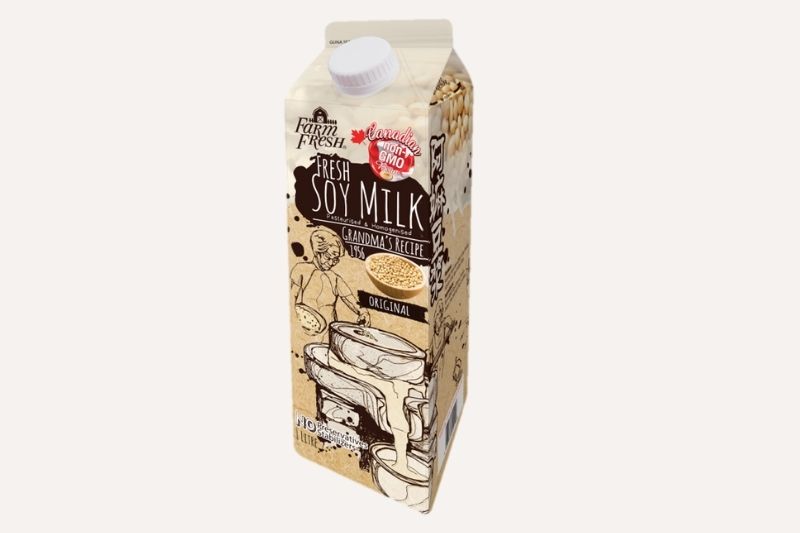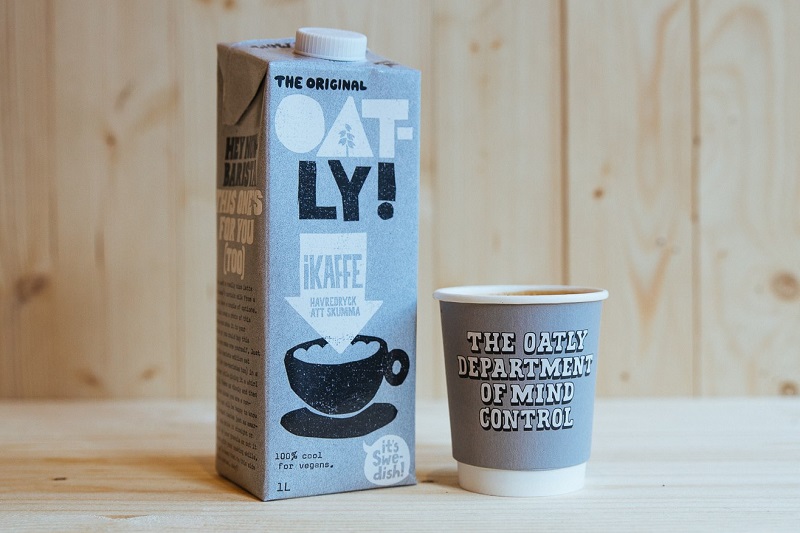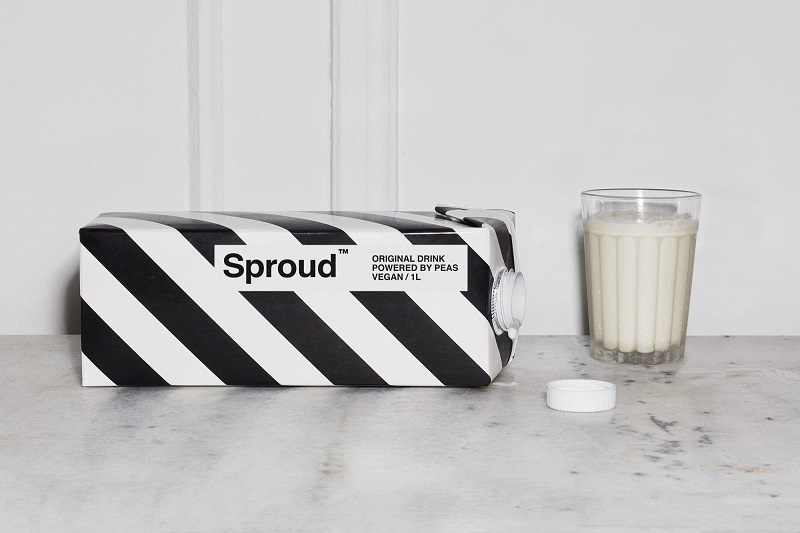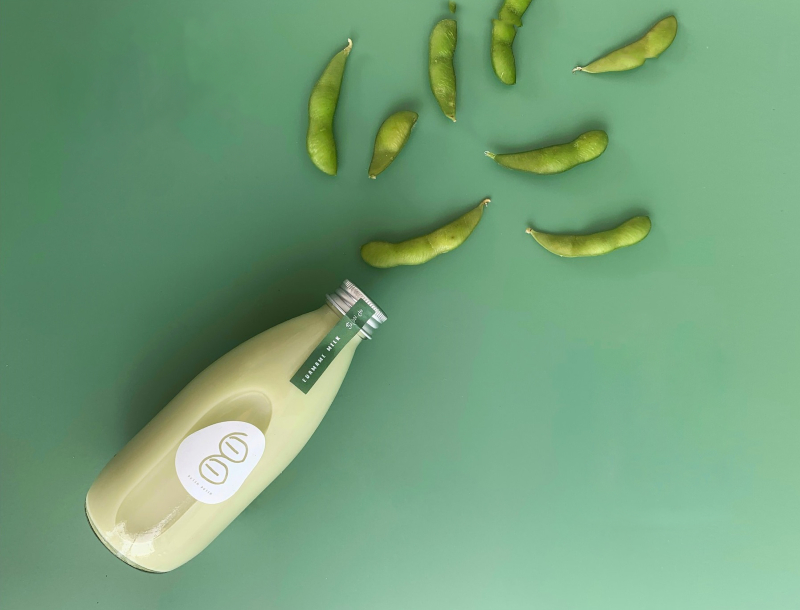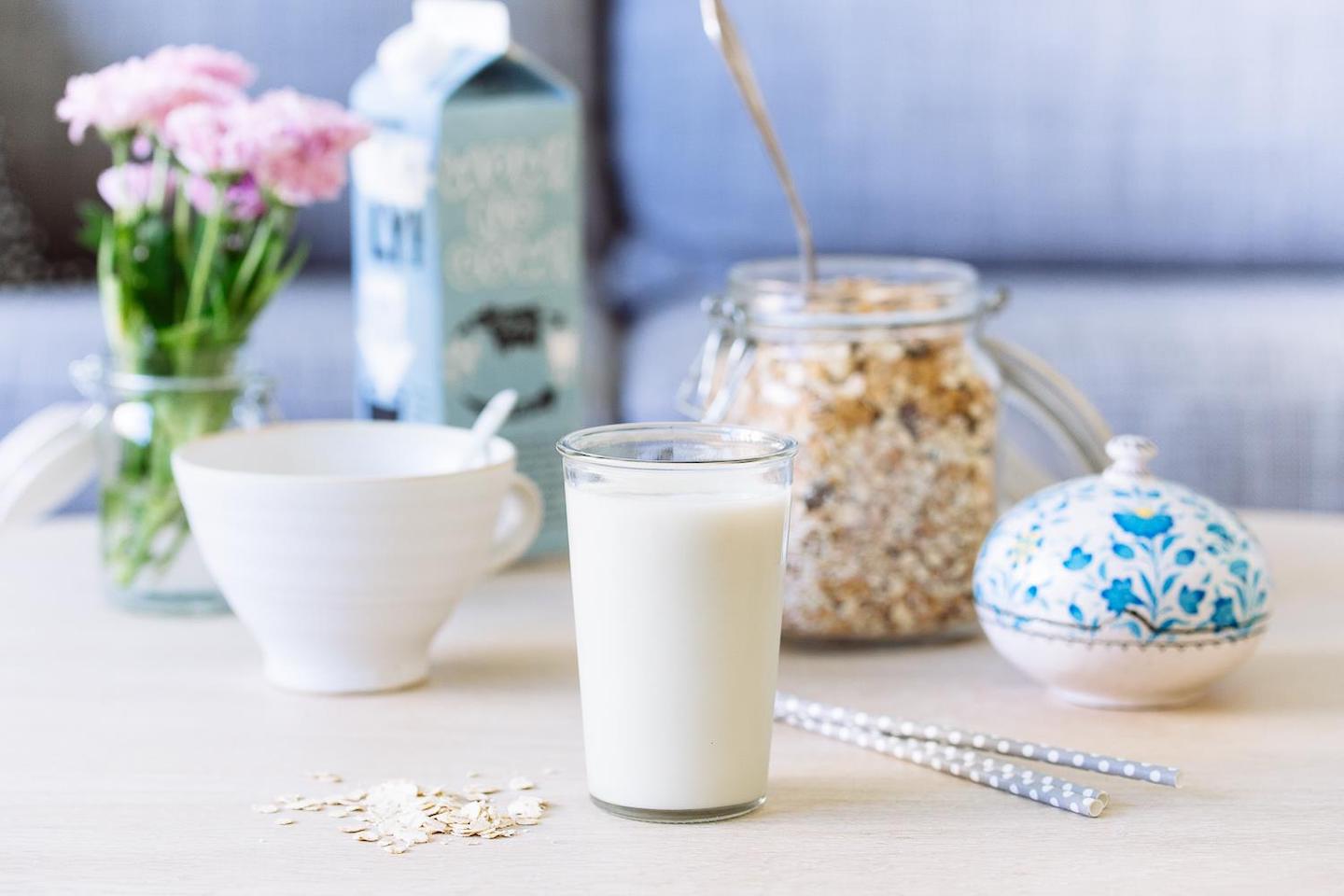
An array of milk alternatives is now more easily accessible in Kuala Lumpur (Photo: Oatly)
Over the past decade, eating trends and consumer attitudes have shifted to favour healthier and more sustainable alternatives. The change in lifestyle — accelerated by increasingly conscious millennials — have shown a higher willingness in consumers to reduce or eliminate animal products from one's diet. Whether that looks like a once-a-week occurence or a full pantry purge, incorporating more plant-based products into your diet can bring about a slew of benefits. However, while carnivores attempting to make the switch might find steaks or sausages made from tofu, peas or mushrooms palatable, it may be extra tricky when it comes to coffee.
You may have noticed your neighbourhood barista reaching for a carton of barista milk, rather than the regular stuff you keep in your fridge. This is because not all milks are created equal. According to Perfect Daily Grind, they have differing lactose, protein and fat content, which affect the sweetness, foam structure, and flavour and mouthfeel of steamed milk respectively. The variety available allows the barista to tailor the taste and texture of a coffee to a customer’s preference.
Although milk elevates the taste of coffee, recent years have seen more people ditching dairy for health, dietary or ethical reasons. MedlinePlus, the online health information resource of the US National Library of Medicine, estimates that some 65% of the world’s adult population is lactose intolerant, with the ability to digest lactose reducing after infancy or childhood.
vanilla-iced-latte_sproud.jpg

Those who can (literally) stomach it might eliminate it from their diets to avoid consuming animal-based hormones and antibodies, thus ruling out milk from camels or goats, or in favour of healthier or more sustainable alternatives. The cattle industry is not only responsible for substantial ammonia and methane emissions that contribute to greenhouse gases, but also uses disproportionately high amounts of resources such as water and land.
When one carton closes, another opens. The demand for plant-based milks has soared since and the agricultural sector is ready to feed the fervour. An array of alternatives is now more easily accessible here, from the common-in-Asia soy and coconut, to milk made from peas, hemp, oats, rice, almonds, cashews or macadamia.
Health benefits vary, with the amounts of carbohydrates, proteins, fats and minerals fluctuating from one type to the next. Although data from the US National Centre for Biotechnology Information shows that almond, soy, rice and coconut milks have naturally low traces of vitamins, which can be fortified, they also test low to negative for cholesterol, in a distinct advantage over dairy.
137_almond_milk_.jpg
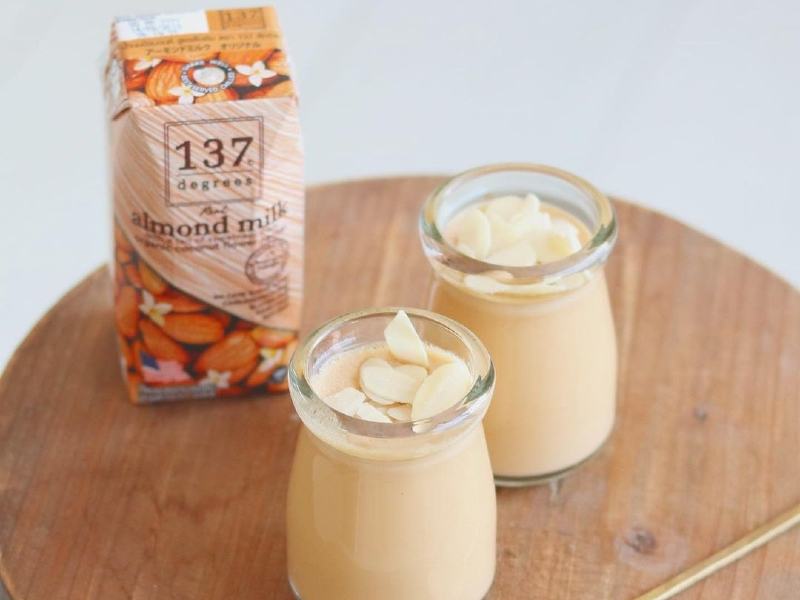
Flavour comes down to individual preference. Most milks have sweetened and unsweetened options, while nut milks tend to be creamier courtesy of a higher fat content. The choice of milk could depend on use, which spans everything from being an accompaniment to cereal to a baking or cooking ingredient. Coconut milk is an Asian pantry staple but can be easily swapped with others in a pinch.
The coffee industry has widely experimented with alternative milks and while the results are subjective, mild and creamy oat milk often comes out on top as a seamless dairy replacement. Sydney-based coffee roaster Seven Miles has even pinpointed sweetened oat milk as the best option as sugar stabilises the structure and enhances the gentle nutty flavour.
Just as with dairy, though, not all vegan milks are created equal and consumers are encouraged to study labels. Commercial almond milk often contains the controversial stabiliser and thickening agent carrageenan, which is linked to digestive issues, and is notorious for having just a tiny percentage of almonds with most of the rest being water, stirring debates over how manufacturers can justify the high price tags. Most nut and grain milks available here are imported, but The Holstein Milk Company, best known for its Farm Fresh label of preservative-free dairy products, has expanded into the plant-based milk game with soy, almond and oat alternatives.
oatly_c.jpg
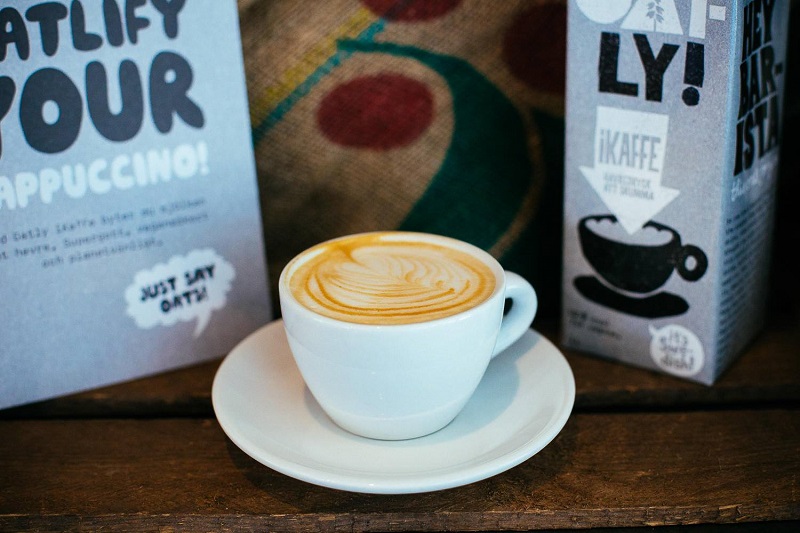
If you are in possession of a blender, time and patience, consider making your own for complete control over flavour and quality. Nuts and soybeans have to be soaked beforehand, but you can skip this step for grains and put them straight into the blender with filtered water. Sieving might be the most laborious part of the process, but you will be rewarded with all-natural freshly made milk that you can sweeten or flavour as you like.
Although plant-based milks compare favourably with dairy in terms of nutrition and flavour, some carry their own sustainability demerits. Heavy water and pesticide use plague the almond industry, with a single almond requiring 3.5 litres of water to grow. Over 80% of the multibillion-dollar business is cultivated in drought-afflicted California, resulting in mass land clearing and the diversion of water from the state’s aqueduct system. Quinoa has a similarly dark environmental story, coupled with a premium export demand that has since priced local Peruvians out of the once-staple grain.
The milk scene, plant-based or otherwise, has grown sufficiently to allow customers their pick of poison. What you choose to pour into your cup can now resonate with your belief system as much as it agrees with your body.
PICK A PLANT
Plant-based milks are growing in popularity in Kuala Lumpur, which means they are more accessible than ever. Locally-made soy milk is easily available and most major supermarkets should have a decent selection of nut and grain options. Give any of these a go if you are keen on phasing out dairy from your diet or just want an agreeable alternative.
Farm Fresh soy milk
Soy is one of the most common alternative milks available in Malaysia, favoured for its light texture. It has the same protein content as dairy and is rich in potassium, and can be fortified with vitamins and calcium for greater nutritional benefit. Farm Fresh has a UHT version made with non-GMO Canadian soybeans, brown sugar and permitted food stabilisers, while the fresh sweetened and unsweetened versions use non-GMO soybeans, sea salt and soy lecithin. The brand is known for using minimal ingredients in its dairy products and maintains that philosophy in this category.
137 Degrees almond milk
A popular dairy substitute, almond milk is loved for its naturally creamy texture. Unsweetened variants can be surprisingly low in calories, but what the milk does have in abundance is Vitamin E, a powerful antioxidant that reduces inflammation and protects against heart disease and cancer. 137 Degrees offers both sweetened and unsweetened variants, and is also carried at FamilyMart if you are in the mood for a quick nutrition boost on the go.
137_degrees_almond_milk.jpg
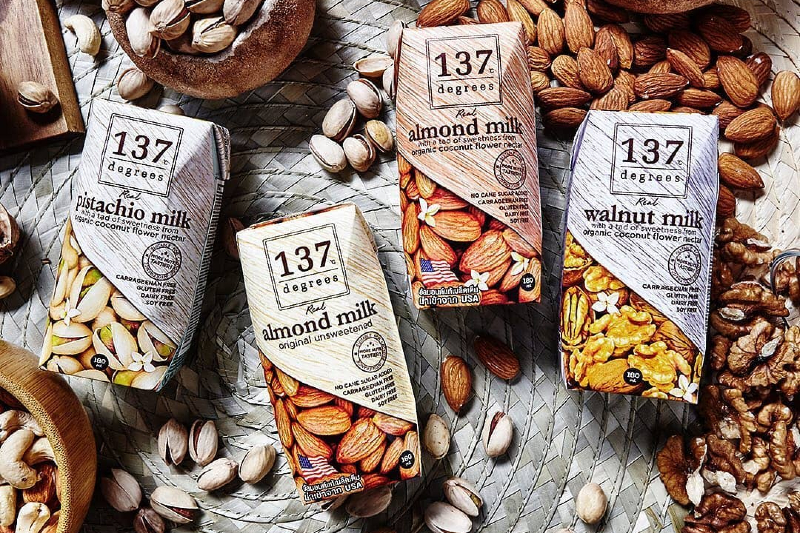
Oatly oat milk
As oat milk is often made by blending steel-cut or rolled oats with water and straining the mixture in a cheesecloth, it might not be as nourishing as whole oats but is not nutritionally bankrupt either. This grain-based milk is free of many allergens found in other types of milk and contains beta-glucans, which are soluble fibres that keep your heart healthy. Oatly is a Swedish vegan food brand that strives to minimise its impact on the environment. Options include sugar-free original and organic versions, as well as a chocolate edition for those who fancy a treat.
Sproud pea milk
Pea milk is definitely one of the least-common plant-based milks here but that is no reason to shrink away from it. The nutrient-dense drink is a plant-based protein powerhouse and an excellent source of calcium. Swedish brand Sproud claims its pea milk tastes just like milk, with an incredibly low sugar content. Its Original version is fortified with vitamins B12, B2 and D2 for a full-flavoured, wholesome mouthful.
Putih Putih edamame milk
Edamame is great for snacking, but who knew it would be as delicious in beverage form? Edamame are essentially immature soybeans rich in antioxidants, protein, minerals and vitamins. While many milk alternatives include preservatives to extend shelf-life, homegrown brand Putih Putih’s edamame milk, produced in small batches, can only be kept for two or three days. Putih Putih sells the milk in glass bottles and delivers up to 100 areas in the Klang Valley.
Farm Fresh, 137 Degrees and Oatly can be found at major supermarkets or online. Sproud is only available at @besproud.my on Instagram as at press time and Putih Putih can be ordered via WhatsApp at 012 763 6028.
This article first appeared on Jan 25, 2021 in The Edge Malaysia.

